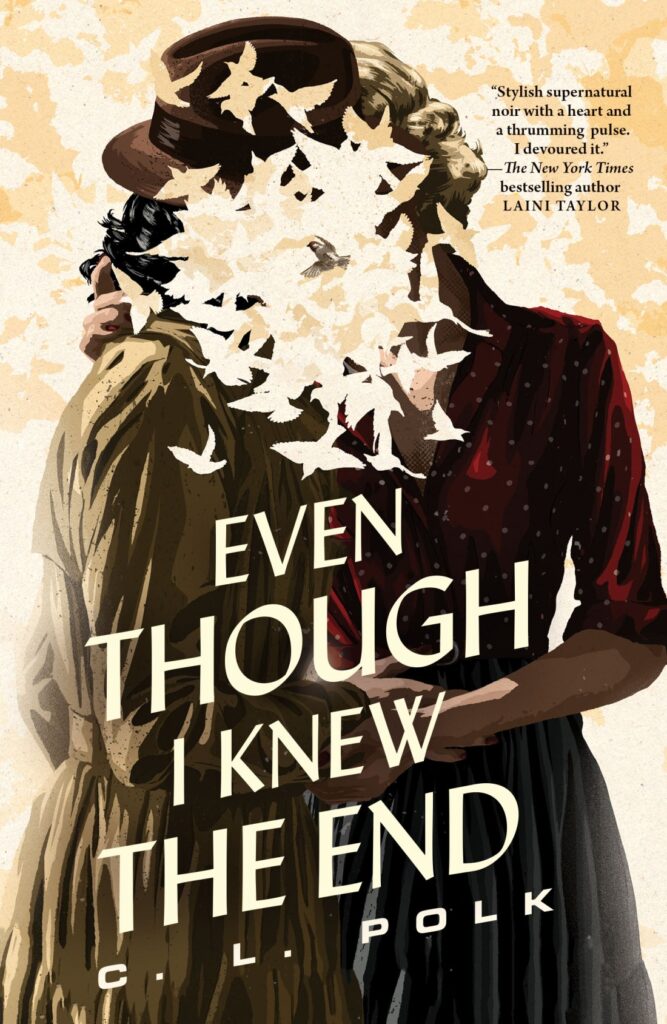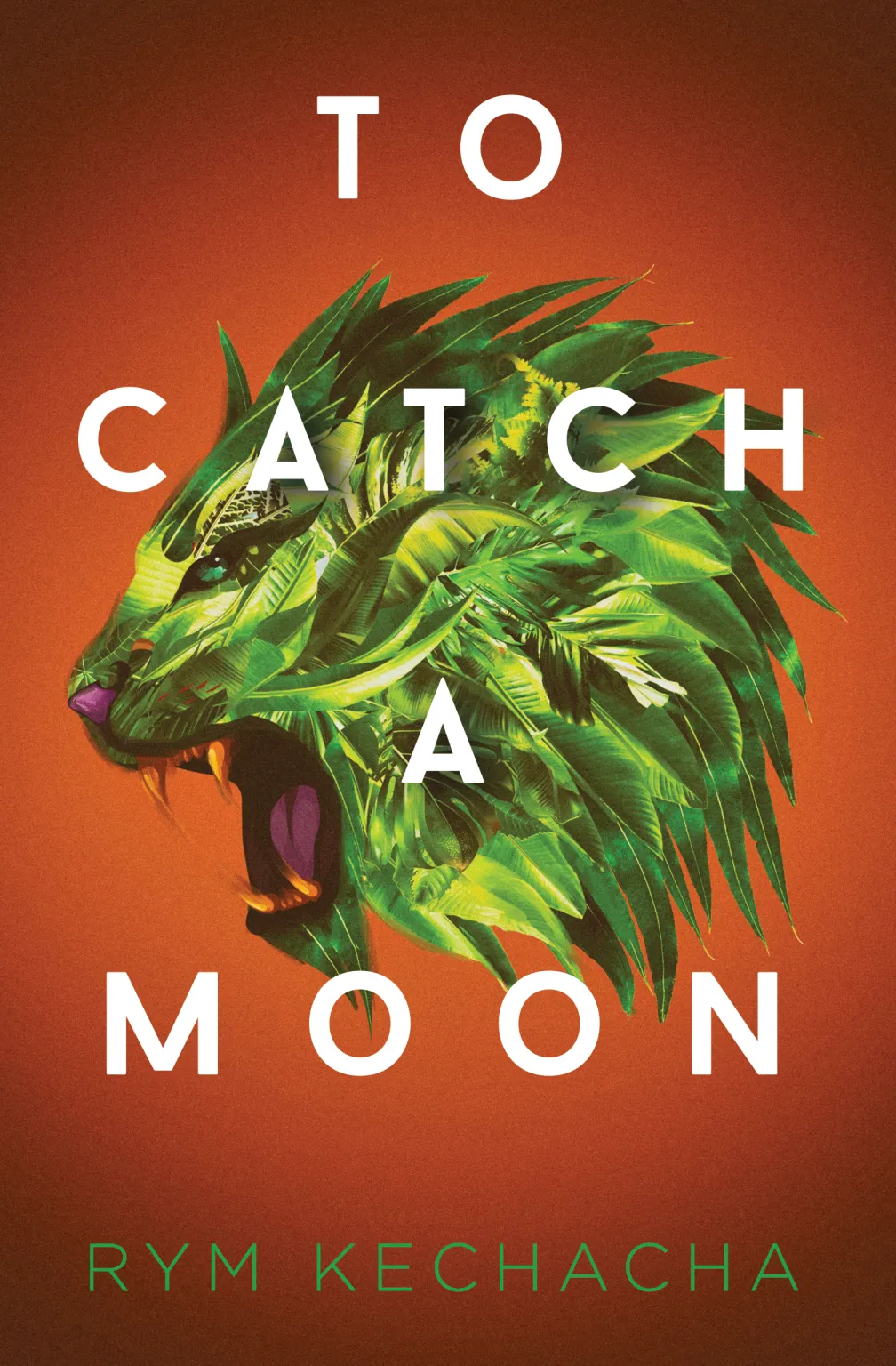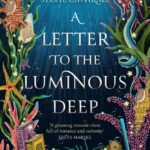
soupçon/ˈsuːpsɒn,ˈsuːpsɒ̃/ noun
1. a very small quantity of something; a slight trace, as of a particular taste or flavorSunday Soupçons is where I scribble mini-reviews for books I don’t have the brainspace/eloquence/smarts to write about in depth – or if I just don’t have anything interesting to say beyond I LIKED IT AND YOU SHOULD READ IT TOO!
Two mini-reviews for books that left me a little…uncertain?

Genres: Fantasy, Historical Fantasy, Queer Protagonists
Representation: F/F
PoV: First-person, past-tense
ISBN: 1250849462
Goodreads

“Stylish supernatural noir with a heart and a thrumming pulse. I devoured it.” —Laini Taylor
C. L. Polk turns their considerable powers to a fantastical noir. A magical detective dives into the affairs of Chicago's divine monsters to secure a future with the love of her life. This sapphic period piece will dazzle anyone looking for mystery, intrigue, romance, magic, or all of the above.
An exiled augur who sold her soul to save her brother's life is offered one last job before serving an eternity in hell. When she turns it down, her client sweetens the pot by offering up the one payment she can't resist — the chance to have a future where she grows old with the woman she loves. To succeed, she is given three days to track down the White City Vampire, Chicago's most notorious serial killer. If she fails, only hell and heartbreak await.
I was warned – by everyone up to and including the author! – that CL Polk’s new book was very different from anything they’d written before. Specifically, that it was reasonably dark, and quite noir, and therefore I have absolutely no right to be…upset that it is exactly what it said it would be.
(‘Upset’ feels like a strong word. Maybe just ‘unhappy’ would be better?)
There were a few aspects of the book that genuinely underwhelmed me: the love between the main character and her partner is very clearly meant to be a One True Love kind of deal, but I never really felt it, and therefore found it hard to believe in. That might be because we didn’t really get to see a lot of their relationship, though; this is a novella, so the pagecount goes more towards plot than lovey-dovey moments.
The other main thing was all the angel stuff. I’m majorly into angelic lore, and while I loved the twist Polk gave to the story of the Watchers, I never felt that sense of awe and wonder or alien otherness that are what I really want to be feeling when angels are involved. I think most of this comes down to Polk’s writing style/Helen’s voice (Helen being the MC and first-person narrator), which is quite…hard-boiled and direct and straightforward, all of which perfectly fits the vibe Polk was clearly going for, but, you know, I like my prose Pretty and Purple, so that didn’t work for me.
What really did upset me was the ending. I have a…very definite Thing when it comes to stories about selling your soul – for example, I have absolutely No Chill if a story makes it possible for someone to sell someone else’s soul rather than their own. (That’s not what happened here.) I don’t know if it was being raised Roman Catholic or what, but I need there to be rules and some kind of fairness to the system or I get upset. And I absolutely lose it when characters are stupid about it.
Well, suffice to say that Helen is extremely fucking stupid about it, and I ended up wanting to throw this book out into the snow.
However – none of these things make Even Though I Knew The End a bad book. It just wasn’t to my taste, and managed to hit one of my Absolute Nope buttons…but that doesn’t make it bad.
When I look at it as objectively as I can, I don’t think this was jaw-droppingly amazing or anything, but it was and did what it wanted to be and do, so points for that?

Genres: Fantasy
PoV: Third-person, present-tense, multiple PoVs
ISBN: B0B47D72GT
Goodreads

Mexico City, 1955. The painter Remedios Varo sits in her kitchen with her friend, the artist Leonora Carrington. Together they let their imaginations soar beyond their canvases to create new worlds.
In the surreal landscape of her imagination, Varo’s creations take on a life and power of their own. A wheeled spirit of the earth kidnaps a baby star; a woman who is half owl draws herself a daughter; a juggler entrances a crowd of grey-cloaked men, a lion and a goat. The rules that govern this world bend and creak, old alliances break, and an impending apocalypse forges the most unlikely of friendships.
To Catch a Moon was a book I became absolutely rabid to read after I learned about it from Fantasy Hive, something which was only further cemented when Civilian Reader posted an author-annotated excerpt of it. Having now finished it…I really don’t know what I think.
To Catch a Moon follows several different characters through storylines that eventually converge; a girl sewing the world into existence; a lion who used to be a man and is still part of a troupe of actors; the thirteen wheel-riding…beings…who organise the world; and the latest daughter of the moon. It feels quite dreamy and strange – which is clearly deliberate – and the pacing is very dream-like as well; this is definitely not a grab-you-by-the-throat thriller, but that’s okay because it’s not trying to be. It’s…I’m not sure exactly what it is. It doesn’t fit neatly into any genre niche I can think of; it’s not a coming-of-age, there’s no quest as such, it’s not a struggle between good and evil, exactly. It’s its own thing, which I really like. The story is a fairly languid wandering thing, humming to itself as it winds back and forth, soft even when it’s bitter.
Unfortunately, I think that kind of pacing – that lack of impetus – only really works when the prose is so gorgeous I’m here more for the writing than the story, and that wasn’t the case here. And while I really liked some elements, for the most part I didn’t think To Catch a Moon was strange enough – I’m calibrated for dreamy strangeness like Palimpsest by Catherynne Valente, or Half-Witch by John Schoffstall, or Hal Duncan’s Book of Hours duet. By that standard, this did not measure up. To Catch a Moon never made me ache with wonder, never showed me anything so beautiful or strange it got into my dreams, never made itself a nest in my heart.
I think it says a lot that although I finished it just a few days ago, I’m struggling to remember most of the plot/s, and can’t remember a single character name except Goat. (Goat is awesome.)
I suspect readers who enjoy slow dreamy books will enjoy To Catch a Moon, given that I seem to be an outlier when it comes to how weird I want my weird fantasy to be. The prose is lovely, and the thoughtful, slow pacing doesn’t ask much of the reader – it’s a good book to pick up when you just can’t face something fast and/or complicated.
Basically, I think both of these would delight the right reader! But alas, the right reader was not me.







Leave a Reply